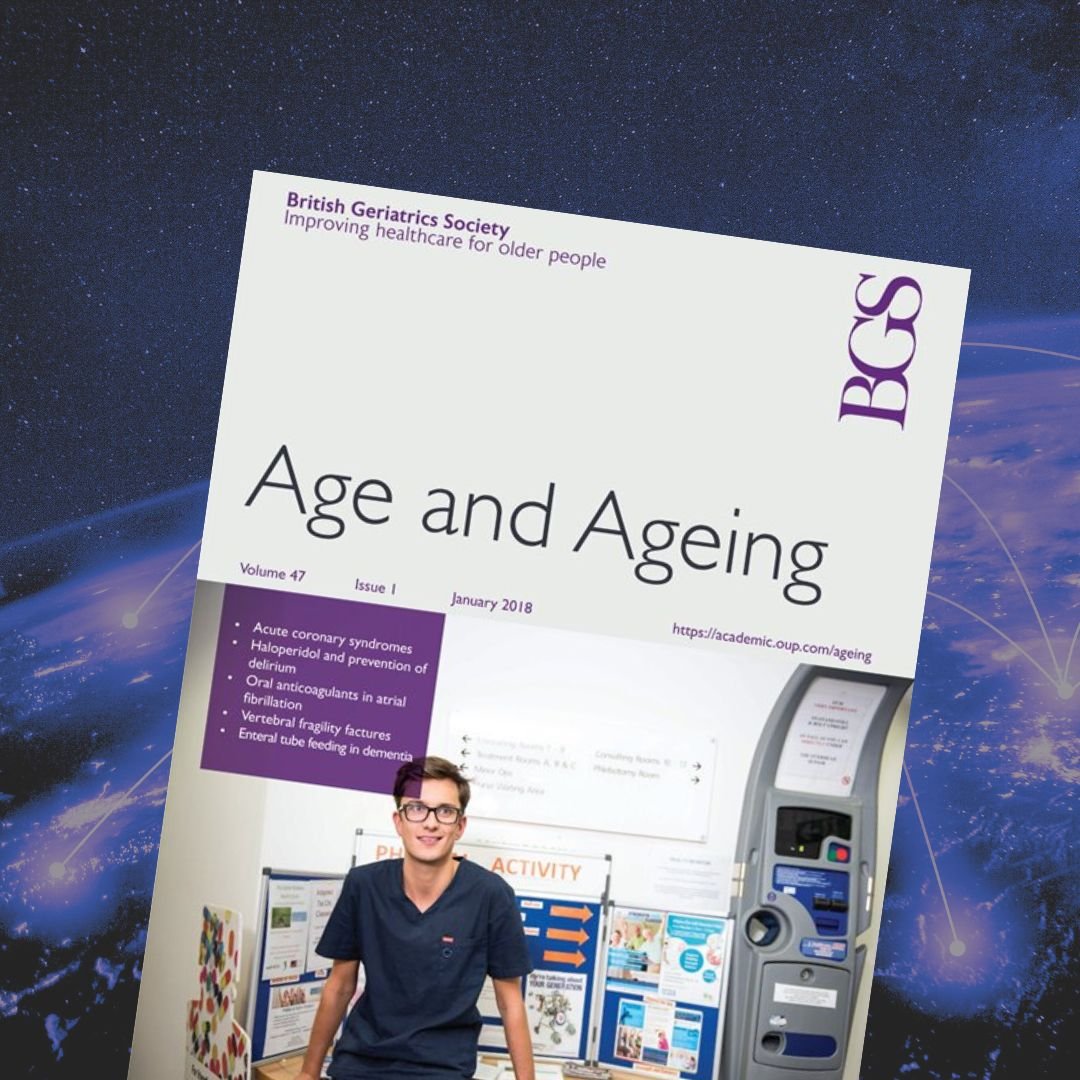Rowan Harwood is Editor-in-Chief of the scientific journal Age and Ageing. He is Professor of palliative and end-of-life are in the University of Nottingham, and an Honorary Consultant Geriatrician. He has wide clinical and research interests including delirium, dementia, stroke, continence, rehabilitation, end of life care, falls and clinical ethics. He spent 10 years as a stroke physician. Since 2009 has worked to develop and evaluate better ways to manage cognitively impaired older people in general hospitals, and other dementia related research.
After 5 years, my term of office at Age and Ageing journal has nearly expired, and we are seeking a new Editor-in-Chief. The role is uniquely interesting, worthwhile, educational and inspiring. Is this a job that you could do?
Age and Ageing is the journal of the British Geriatrics Society (BGS), and consistently one of the top two or three clinical geriatric medical journals worldwide. We aim to publish original research and reviews on clinical and other aspects of later life, medical education, health policy and service improvement, with a particular emphasis on papers which will be of interest to clinicians. Producing the journal is a substantial operation, managed between the BGS and the publisher, Oxford University Press (OUP).
In 2023, we received 2300 new submissions, of which we will accept about 300. To manage these, we have an engaged and highly motivated team which includes the Editor-in-Chief, a deputy, six senior editors, 32 associate editors, a full-time editorial manager and additional editorial assistants. We have an executive committee and an editorial board, chaired by Finbarr Martin, which are responsible for business and academic strategies. We are proudly international, with representation from the UK, Netherlands, Australia, Italy, Switzerland, China, Malaysia, Canada and Mexico, and an eminent International Advisory Panel. It only works through the contribution of the whole editorial team, who can only be described as magnificent.
We face challenges. The pandemic period saw a doubling of submission to journals, and 2023 has been another record year. Publication fraud is on the rise; we must detect and respond to it. There is increasing competition from other journals and new pre-print servers. The business side of the journal has also been challenged. Financial turnover is considerable, and profits contribute to supporting the objectives of the BGS. In recent years, libraries and research funders have rebelled against perceived high costs and unseemly profits, especially from big corporate publishers. An organisation called Coalition S promoted making all papers open access, based on article processing charges (APCs). This is good in principle, but it overlooked concerns to ensure continued access for clinicians, PhD students and contributors who did not have funding for APCs, and has seen escalation in APCs, with some journals charging £10000 to publish a single paper. In response, a range of speculative new models have been proposed. Age and Ageing, for the time being, is a ‘hybrid’ journal with both subscription income and APCs for open access where the authors request this. This story will continue to unfold.
Academic publishing has its own support community. Age and Ageing belongs to the Committee on Publication Ethics (COPE), which provides guidance on the handling of dilemmas and nefarious activities. OUP (which has 400 academic journal titles) and other publishers run seminars on emerging issues, which are well-attended by editors from a wide range of disciplines and countries.
The role of Editor-in-Chief is both a privilege and a challenge. The Editor needs skills across a wide range of topics and methodologies, and awareness of clinical, policy, educational and academic issues. If we care about the future of our specialty, we must do research, and publish evidence that will drive better practice. Selective journals filter the best of what is done. Being editor provides a unique insight into the specialty, academic life, and the incredible individuals who work in it. Leadership in this context is distributed and collaborative. No individual can do this alone, which is why we work in teams and within governance structures. Those behind Age and Ageing are in good health.
